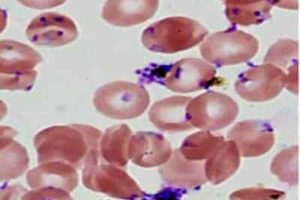walter reed army institute of research
MIT engineers design new nanoparticle that could lead to vaccines for HIV, malaria, other diseases
CAMBRIDGE, Mass.- MIT engineers have designed a new type of nanoparticle that could safely and effectively deliver vaccines for diseases such as HIV and malaria.
The new particles, described in the Feb. 20 issue of Nature Materials, consist of …
Extraverts are more vulnerable to effects of sleep deprivation after social interaction
DARIEN, IL — A study in the Nov. 1 issue of the journal SLEEP found that vulnerability to sleep deprivation is influenced by the interaction between waking social activity and individual personality traits.
Results show that extraverts who were …
First step towards detecting exposure to biowarfare agents
Army researchers are laying the groundwork for what one day could be a test to identify individuals who have been exposed to biological agents. They present their findings today at the American Society for Microbiology’s Biodefense Research Meeting. “Recent events have demonstrated that assessing exposure to a biological threat agent well in advance of onset of illness or at various stages post-exposure would be an important capability to have among the diagnostic options,” says Marti Jett of the Walter Reed Army Institute of Research, the scientist directing the study.
Brain injury test may be health care boon
U.S. soldiers fighting in today’s high-tech military force will be much more likely to survive traumatic brain injuries if University of Florida researchers succeed in developing a blood test to assess the severity of head wounds on the battlefield, U.S. Department of Defense officials say. Such a test can’t come soon enough for the department, which has allocated $2.2 million to help scientists at UF’s McKnight Brain Institute and the Walter Reed Army Institute of Research develop the first routine diagnostic tool to define the scope of such injuries. Penetrating brain injuries claim 25 percent of soldiers killed in battle, according to department officials, yet there is no effective way to diagnose traumatic brain injury short of a brain scan, which is not practical in combat settings.

